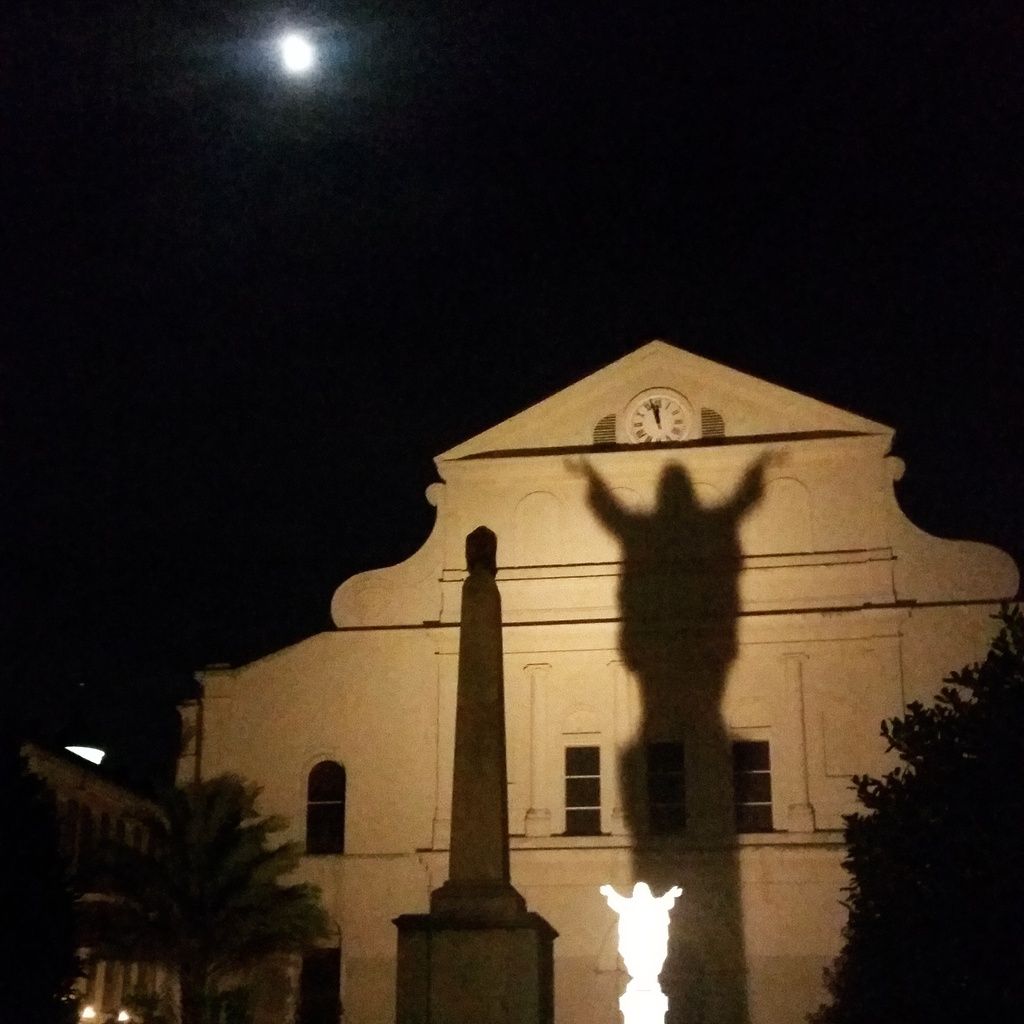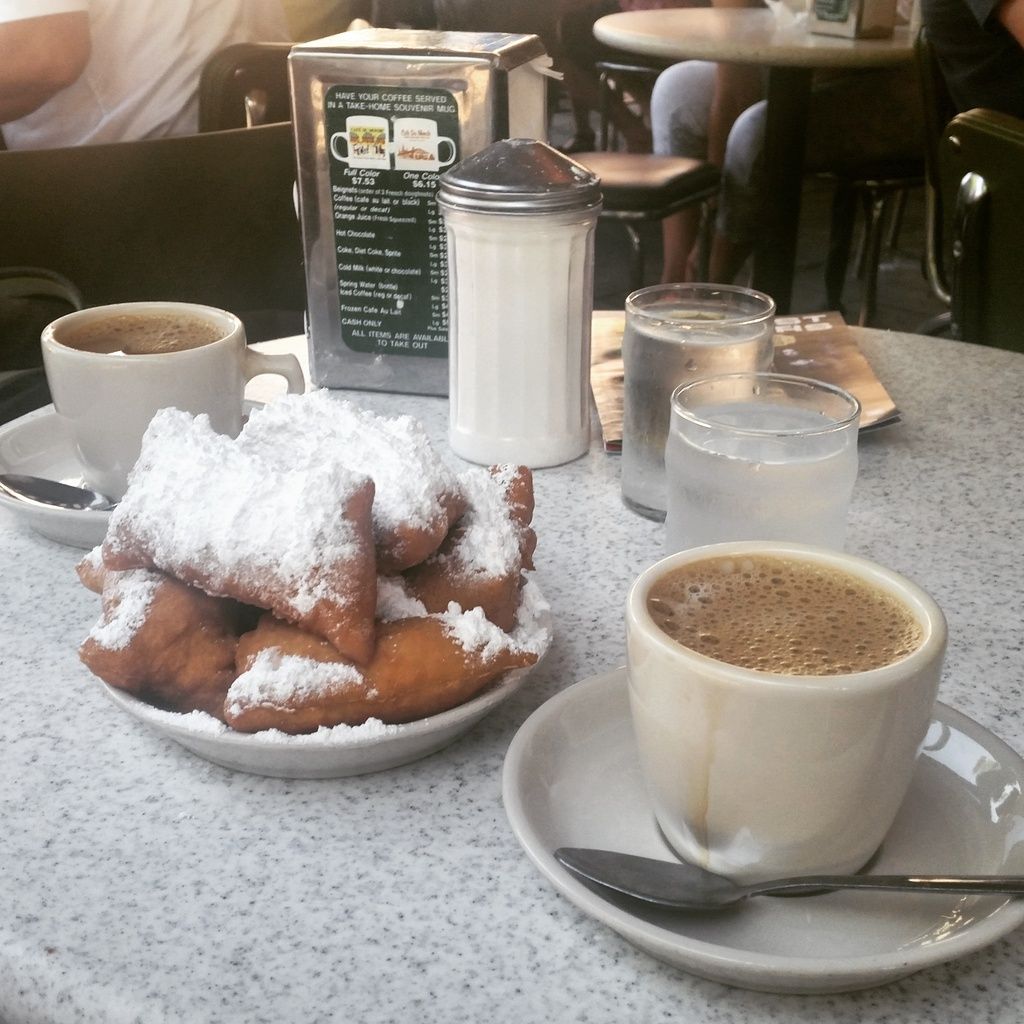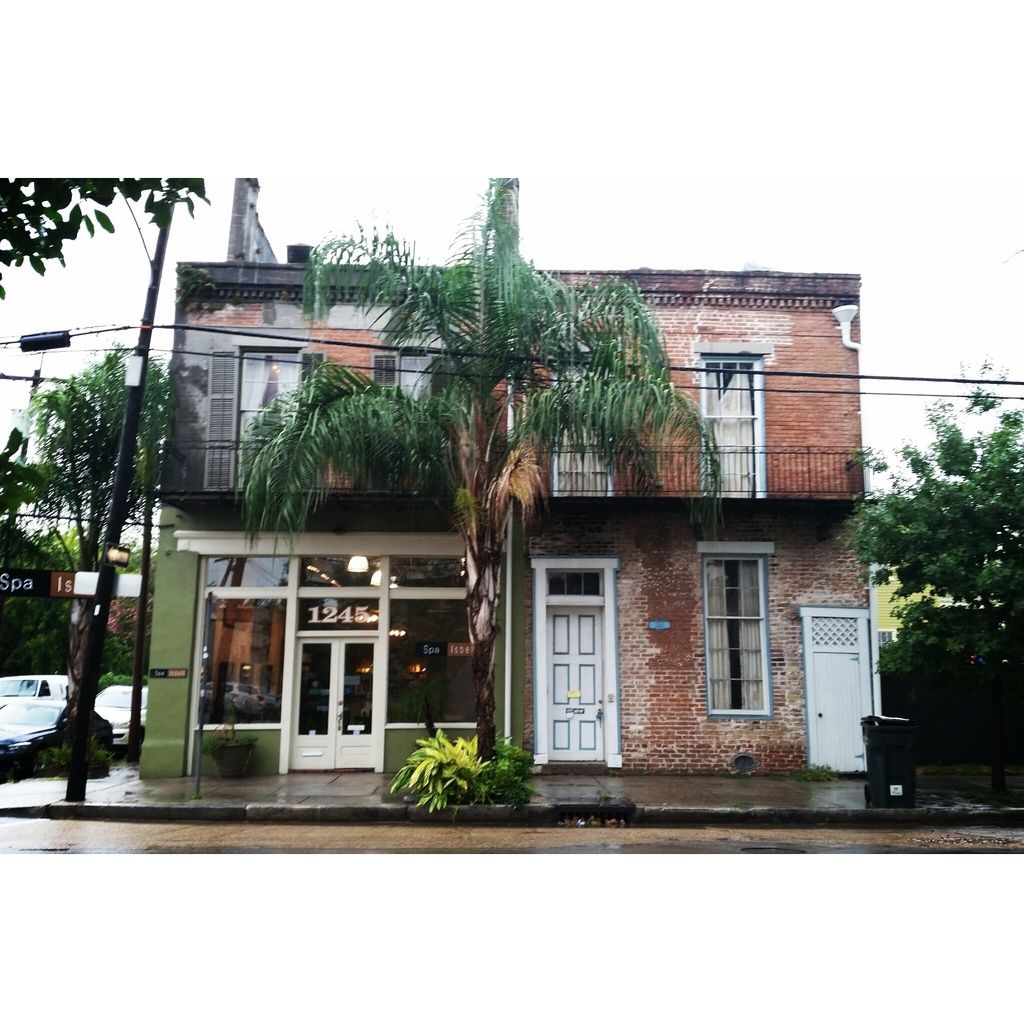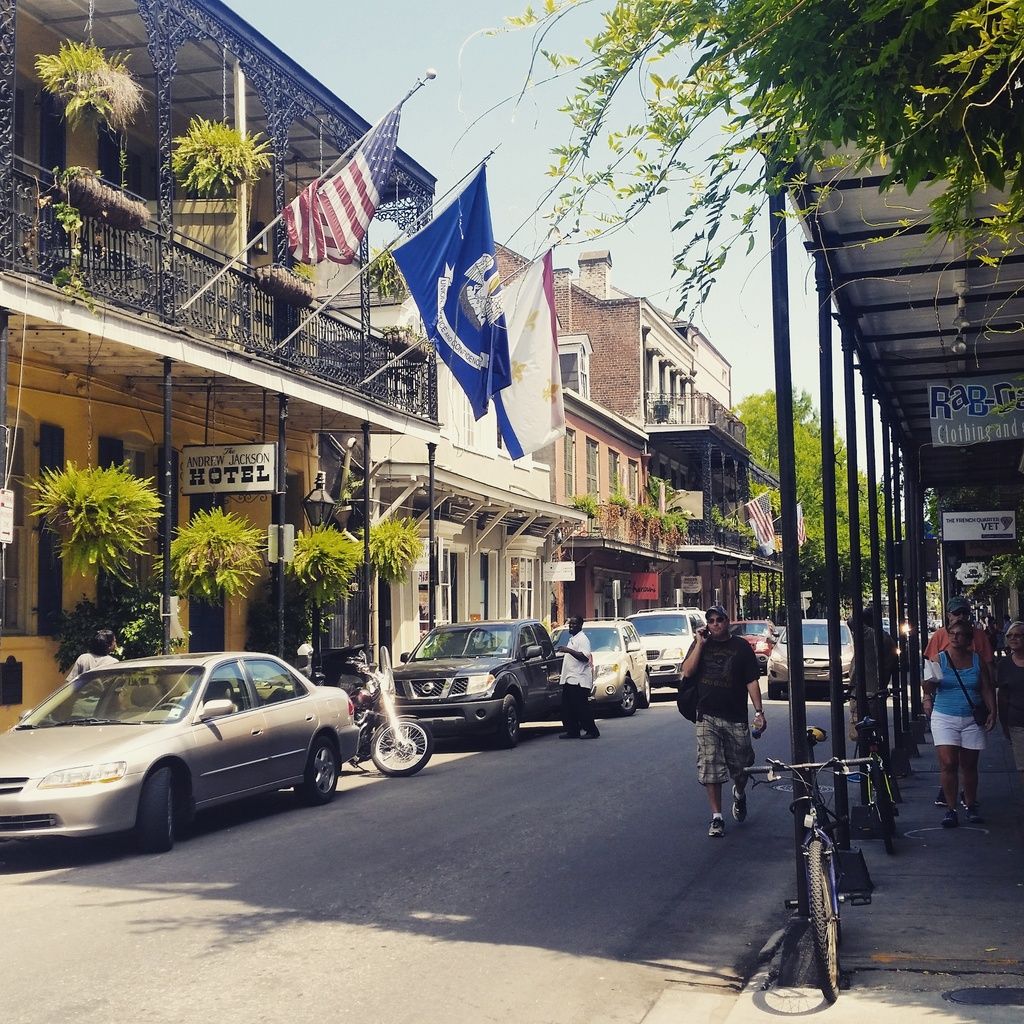A Literary Cities piece on New Orleans, by Carlotta Eden.
Here are the things you already know about New Orleans: the carnivals, the beads, the masks, the Hurricanes, the beignets, the gumbo, the swamps, the broils, the sazeracs, the jazz, the bayous, the floods, the ghosts, the levees, the Voodoo.

Here are the things you don’t know about New Orleans: when you land, after a 12-hour flight, tired and achey and hungry, your feet not yet blistered from walking the hot roads in the lunchtime sun because you don’t want to miss out, a man with a guitar on his back will find you wandering a quiet street and ask if you need directions, and when he hears your accent he will open up his arms and say ‘Welcome to Nawlins!’ as if the city knew you were coming, as if it was carving out a little space just for you. This you’ll eventually learn is not the case; that New Orleans belongs to everyone, and that’s the way they like it.
You’ll visit the city for a few days, the first and last stop on a trip through the south. You’ll travel with an old boyfriend, both your legs itchy for the southern sun, for air smoother than London fog. New Orleans will look and feel and smell exactly as you both thought it would: kinda musty, warm, sticky. You’ll remember the colours, most of all, and the way the beads hang from the trees all year round. You’ll never taste sugar as sweet or good as the sugar in Café du Monde. You’ll forever want to spend your nights listening to trumpets and sax from a balcony, drinking Shirley Temples; realise this is what they know better than anyone else. You’ll forget the time, how long you’ve been out. You won’t want to get drunk; you’ll worry you’ll forget everything. You’ll worry nothing will ever compare. You’ll eat the best burger of your life.

In the day, you’ll climb across broken slabs of concrete in the Garden District, the trees’ roots shifting the sidewalk like the rising dead. When someone tells you it’s because of the water, you’ll realise just how many times this city’s had its heart broken. That you can’t write about New Orleans and ignore its past – or its present. You’ll think of the empty plots of land that you walked past in the brightness and noise of the French Quarter. The skeleton homes and deserted buildings. You’ll drive over the new bridge, past the old one that stops a quarter of a mile into the river, just stops, with nowhere else to go, nothing left to hold it up, and listen to a New Orleansian tell you why this city still beats; how most of its residents came back after they left, still no place to go, nothing left to hold them up. That a storm can tear down your house but it won’t stop you going back home again after it’s done.

New Orleans is not like the rest of America, and the fact that it doesn’t fit into the same rhythm, doesn’t quite keep up in the same way, makes it all the more curious. It’s not just its corrupt politicians or sick poverty or high crime; in Nine Lives, Dan Baum describes the city as ‘perpetually whistling past the graveyards’, says ‘New Orleanians are masters of the lost art of living in the moment’ and even when you get past the art, the food and the music, there’s still this inherent coolness, a revelry of time and place, a playful slowness, perhaps because in New Orleans ‘they have more time than money, and that’s how they like it.’

This is not to make a generalisaton of a city like New Orleans: no city deserves that. Paris is more than a city of lovers; New York is not solely for the fast and the furious; Berlin is not just a hip place to call home, and we don’t all walk looking down in London. For those who don’t know New Orleans, it is more than clips of battered homes and floods in music videos, more than the trashy fanfare in American Horror Story or the Mardi Gras skulls painted across faces at Halloween. It is a city full of people that rise again and again, that get back up even when the rest of its country won’t give it a helping hand. It’s a city of storytellers: the all-female motorcycle gang, the first apothecary shop owner to pass the licensing examination, the Voodoo queen Marie Laveau. It’s the man who stopped to ask if you needed directions; the folk with a lot of time on their hands and a lot of time to give. It’s the way you can roll Nawlins off your tongue, like a poem. As Dylan said:
“The devil comes here and sighs. New Orleans. Exquisite, old-fashioned. A great place to live vicariously. Nothing makes any difference and you never feel hurt, a great place to really hit on things. Somebody puts something in front of you here and you might as well drink it. Great place to be intimate or do nothing. A place to come and hope you'll get smart – to feed pigeons looking for handouts”

You only knew New Orleans less than week, but you already miss it more than any other city. It seeps into your writing as this great character that you can’t and won’t ignore. Good, feed it. Listen to the stories of the city away from what you think you already know. When you next visit, don’t ask the questions you think you need to, but don’t forget that some things aren’t your story to tell. Remember you’re allowed to love a city that’s still hurting. Remember that even though a heart can heal, it never forgets.

This is a Literary Cities piece, part of a series where writers reflect on the places and experiences that have inspired them. To read more like this, click here.
Carlotta Eden
Carlotta Eden is a writer and editor living near London. She co-founded Synaesthesia Magazine and her writing can be found on Necessary Fiction, matchbook, WhiskeyPaper, Chicago Literati and elsewhere. Her favourite words are puckered and buffalo and disco. Find her on Twitter @1chae.

